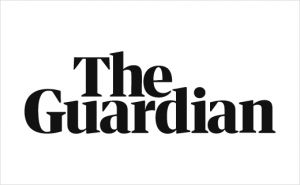
(This post originally appeared on The Guardian)
Among all the small businesses in this country that have suffered this past year, it’s little debate that those who own independent restaurants have suffered the most. Thanks to the pandemic, local officials have placed draconian restrictions on their operations. It’s making it extremely difficult for these restaurateurs to survive.
But for those who have managed to survive, there’s been a significant bright spot: outdoor dining.
Just about every city has allowed restaurants to create seating on the sidewalks and streets in front of their establishments, with some cities and organizations even providing funding to help them with the transition. Many restaurants have jumped at the opportunity and spent thousands of dollars erecting makeshift eateries, yurts and pods, complete with ductwork, electrical wiring, space heaters, private TV sets, sliding doors and comfy furniture, all to navigate around their cities’ restrictions. And although some set-ups don’t appear to be any safer than an indoor dining room, their cities have let them. And their customers seem to love it.
So the big question, now that we can see an end to Covid with vaccinations, is whether those same cities will allow them to continue forever. Will outdoor dining be here to stay?
It is in New York.
New York City was one of the first in the country to make outdoor dining permanent this past fall. “It was a big, bold experiment in supporting a vital industry and reimagining our public space – and it worked,” the city’s mayor told the New York Times. “As we begin a long-term recovery, we’re proud to extend and expand this effort to keep New York City the most vibrant city in the world. It’s time for a new tradition.”
Of course, outdoor dining isn’t new. But the trend is just one of those existing things – like work from home, e-commerce and virtual meetings – that was accelerated because of the pandemic, and it will surely provide a new channel of income for restaurateurs once the pandemic is behind us and the economy recovers. It’s also an opportunity for many cities to reinvent themselves.
“From Tampa to Tulsa, Seattle to Syracuse and Brooklyn to Burlington, cities are embracing parklets like never before,” writes Andrew Hirschfeld in OZY. “Urban designers, city planners and architecture firms alike are scrambling to come up with innovative designs for parklets, prompting competitions like the Design for Distancing planning initiative in Baltimore, Maryland, focused on outdoor spaces.”
There’s certainly some pushback. While many are sympathetic to the plight of small restaurants, city residents have been patiently turning a blind eye to the loss of parking, loading zones and the intrusion of their walkways while busy restaurant employees run back and forth with plates of food. Street closures will create traffic problems once traffic returns. People with disabilities are already complaining about added hazards. Some will want things to get back to how they were before the virus. But those concerns don’t seem to be stopping a movement in many areas of the country towards making permanent what was originally thought to be a temporary arrangement.
Dallas city council is considering a plan to allow many restaurants who have moved their operations to the streets to stay there. Los Angeles and Boston’s leaders are also discussing similar plans. Cincinnati’s leaders have approved a plan to convert a temporary outdoor dining program into a permanent feature. Writers and restaurant industry experts are voicing support for other cities to do the same.
I’m one of them. Outdoor dining should be made permanent. City residents like me will adapt and be better off for it. As for restaurant owners, permanent outdoor dining would be a new channel of revenue that, if made permanent in 2021, could make up for some of the losses they’ve incurred in 2020. And it will also provide opportunities for architects, construction contractors, engineers, supply manufacturers and other small businesses who will seek to serve these needs. And guess what? We have Covid to thank for it.

